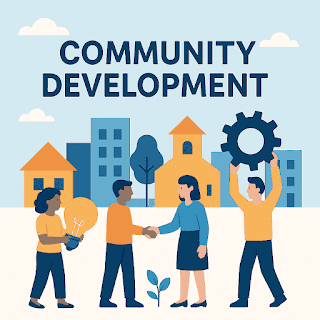Introduction
Ethical dilemmas are an inevitable part of community practice, where social workers must balance competing values, stakeholder interests, and organizational goals. Whether it’s conflicts of interest, value clashes, or informed consent issues, ethical challenges can complicate community organizing efforts.
(toc) #title=(Table of content)
This blog post explores common ethical dilemmas in community practice, tools for resolution, and how to develop a personalized ethical framework. By the end, you’ll understand how to apply ethical principles like self-determination, social justice, and confidentiality in real-world scenarios.
Understanding Ethical Dilemmas in Community Practice
Community organizers often face complex ethical challenges that aren’t fully addressed by standard guidelines like the NASW Code of Ethics. These dilemmas arise from:
Conflicts of Interest (e.g., financial ties, personal relationships).
Choice of Tactics (e.g., confrontational methods vs. long-term policy changes).
Value Conflicts (e.g., balancing professional ethics with community preferences).
Informed Consent (e.g., ensuring participants understand risks and benefits).
These issues require nuanced solutions tailored to the community’s unique context.
Common Ethical Dilemmas and How to Address Them
1. Conflict of Interest
Conflicts can emerge in various forms:
a) Membership in the Target Community
Pros: Insiders understand cultural dynamics and oppression.
Cons: Bias toward friends or relatives may undermine fairness.
Example: An organizer from the same ethnic group may struggle with impartiality when allocating resources.
🔹 Social Work Material – Essential guides and tools for practitioners.
🔹 Social Casework – Learn client-centered intervention techniques.
🔹 Social Group Work – Strategies for effective group facilitation.
🔹 Community Organization – Methods for empowering communities.
b) Financial Conflict of Interest
Ethical risks arise when organizers invest in community businesses or favor certain sponsors.
Solution: Disclose financial ties and prioritize community needs over personal gain.
c) Personal Relationships with Constituents
Building trust is essential, but blurred boundaries can lead to favoritism.
Tip: Use peer supervision and ethical guidelines to maintain professionalism.
2. Choice of Tactics
Tactics like protests or lobbying must weigh short-term gains against long-term risks.
Example: A confrontational approach may alienate stakeholders but achieve urgent policy changes.
3. Value Conflicts
Organizers may clash with community members or employers over core values like self-determination.
Solution: Use ethical frameworks to rank priorities (e.g., social justice over organizational policies).
4. Informed Consent
Marginalized communities may lack awareness of their rights.
Best Practice: Hold group discussions to ensure participants understand risks (e.g., job loss or stigma).
Tools for Ethical Decision-Making
1. NASW’s Ethical Rules Screen
Rank ethical principles in descending order of importance:
Protection of Life
Equality and Inequality
Autonomy and Freedom
Least Harm
Quality of Life
Privacy and Confidentiality
Truthfulness and Full Disclosure
2. Reisch & Lowe’s Ethical Decision-Making Framework
Follow these steps:
Identify applicable ethical principles.
Gather relevant information.
Rank ethical rules by priority.
Assess conflicts of interest.
Evaluate consequences of each decision.
Building Your Own Ethical Model
Combine NASW guidelines with community-specific values:
Step 1: Identify the dilemma and stakeholders.
Step 2: Consult peers or supervisors.
Step 3: Rank ethical rules (e.g., prioritize life protection over financial interests).
Step 4: Implement and reflect on outcomes.
Pro Tip: Add cultural considerations (e.g., mutual learning) to tailor your framework.
Conclusion
Navigating ethical dilemmas in community practice requires a balance of professional guidelines, cultural sensitivity, and critical thinking. By using tools like the Ethical Rules Screen and Reisch & Lowe’s framework, social workers can make informed decisions that uphold justice and empowerment.



